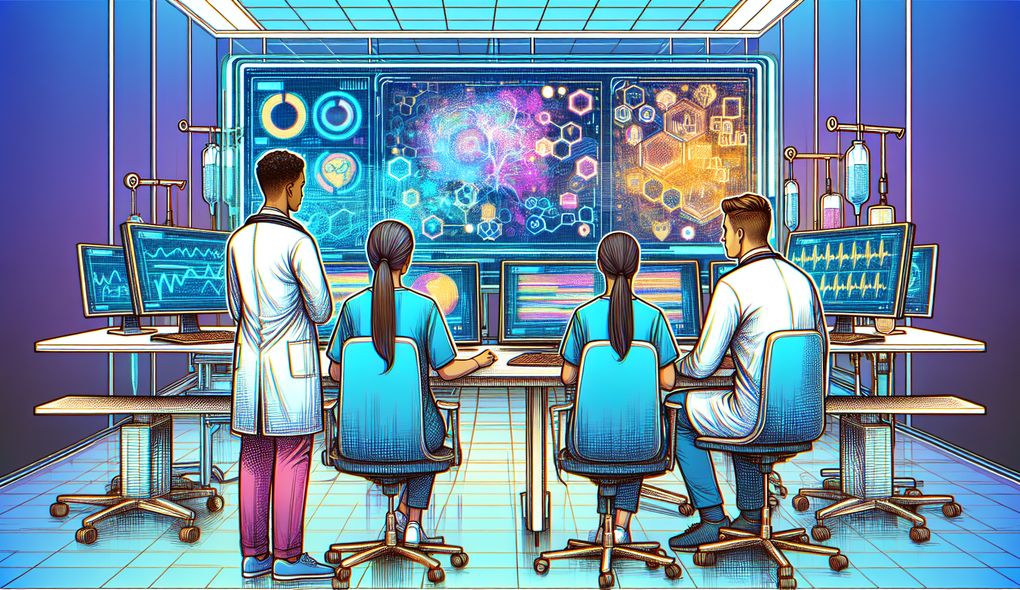How do you handle challenges or conflicts that may arise in your role as a Clinical Analyst?
INTERMEDIATE LEVEL

Sample answer to the question:
When faced with challenges or conflicts in my role as a Clinical Analyst, I approach them by first assessing the situation and gathering all relevant information. I believe in open and transparent communication, so I would discuss the issue with the parties involved to gain a better understanding of their perspectives. Then, I would brainstorm potential solutions and evaluate their feasibility and impact. As a detail-oriented person, I pay close attention to accuracy and quality, so I would ensure that any resolution aligns with this principle. Finally, I would work collaboratively with the multidisciplinary healthcare team to implement the chosen solution and monitor its effectiveness.
Here is a more solid answer:
When challenges or conflicts arise in my role as a Clinical Analyst, I tackle them by following a systematic approach. First, I thoroughly analyze the situation, considering all available data and inputs from stakeholders. Then, I communicate openly and transparently with the parties involved, actively listening to their perspectives and concerns. Next, I propose practical and innovative solutions, leveraging my strong analytical skills and knowledge of healthcare technology. I ensure that any resolution aligns with the high standards of accuracy and quality that are essential in the role of a Clinical Analyst. Additionally, I rely on my excellent communication and presentation skills to effectively convey the findings and recommendations to stakeholders. By collaborating with the multidisciplinary healthcare team, I implement the chosen solution and monitor its effectiveness, making adjustments as needed. Through this approach, I have successfully resolved conflicts and faced challenges, ultimately improving patient care and outcomes.
Why is this a more solid answer?
The solid answer provides a more detailed and comprehensive response to the question. It highlights the candidate's ability to analyze situations, communicate effectively, propose solutions, and collaborate with a healthcare team. It also mentions the importance of accuracy, quality, and knowledge of healthcare technology. However, it still lacks specific examples and details from the candidate's past experience as a Clinical Analyst.
An example of a exceptional answer:
In my role as a Clinical Analyst, I have encountered various challenges and conflicts, and my approach has always been focused on problem-solving and effective communication. For example, when faced with a conflict between healthcare professionals regarding the interpretation of clinical data, I took the initiative to organize a multidisciplinary meeting to discuss the issue in detail. By facilitating an open and respectful dialogue, I ensured that all perspectives were heard and understood. Through this collaborative effort, we were able to identify the root cause of the conflict and develop a consensus-based solution. Another challenge I encountered was the integration of a new electronic health records (EHR) system. This required extensive training and support for clinical staff, as well as close collaboration with IT specialists. By organizing training sessions and providing ongoing support, I successfully guided the transition process and minimized disruptions to patient care. Overall, my experience has taught me the importance of empathy, active listening, and adaptability in handling challenges and conflicts in the role of a Clinical Analyst.
Why is this an exceptional answer?
The exceptional answer provides specific examples from the candidate's past experience, demonstrating their ability to handle challenges and conflicts effectively. It highlights their problem-solving skills, communication abilities, empathy, and adaptability. The candidate also mentions their experience with organizing meetings, facilitating dialogue, providing training and support, and collaborating with IT specialists. These examples showcase the candidate's proficiency in the key skills and responsibilities outlined in the job description for a Clinical Analyst.
How to prepare for this question:
- Be prepared to provide specific examples from your past experience that demonstrate your ability to handle challenges and conflicts as a Clinical Analyst.
- Highlight your analytical and critical thinking skills, as well as your expertise in healthcare technology and data analysis software.
- Emphasize your communication and presentation skills, including your experience in facilitating dialogue and conveying findings to stakeholders.
- Demonstrate your ability to work collaboratively in a multidisciplinary healthcare team and provide support and training to clinical staff.
- Discuss your attention to detail and focus on accuracy and quality in your work as a Clinical Analyst.
What are interviewers evaluating with this question?
- Analytical and critical thinking skills
- Communication and presentation skills
- Ability to work collaboratively
- Detail-oriented with a focus on accuracy and quality

